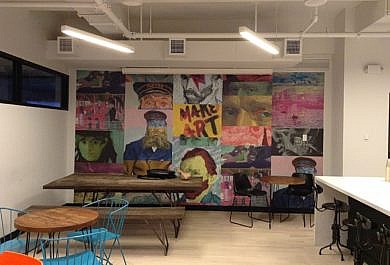Although college enrollment rates for people of color are steadily increasing, there is one subject that we remain stagnantly uneducated on- financial literacy. The October 2021 FINRA study reveals that in an assessment of basic financial literacy, Black and Hispanic Americans score below the national average. Additionally, according to the Federal Deposit Insurance Corporation (FDIC) Native American, Black, and Hispanic households are more prone to money practices that are tied to financial insecurity (bill payment services, money orders, check cashing). This means that although this new generation of educated POC may have access to more opportunities for economic growth, they lack the financial skillset to properly optimize their assets.
This isn’t the fault of any individual, but simply the result of external circumstances. As a student myself, I’ve had many conversations with peers who want to understand finance, but never had the opportunity to learn. Many of these students were children of immigrants or came from lower-class families. Their parents didn’t have the time to think about retirement funds or investing when every dollar needed to be stretched to make ends meet. Additionally, financial literacy is not commonly taught in schools (or at least not core curriculum), so there were little outside resources to learn from.
Without proper financial guidance, students of color often get stuck in the same obtain-spend cycle of their predecessors, and struggle to use their money not just as a transaction but as a tool, or aren’t even aware that such an option exists. Some students don’t even see the benefit in practices outside of saving and spending.
I recently had a conversation with my friend and academic peer, Angie, on this subject. Like so many of our peers, Angie had no formal financial education before college. She came from a household that didn’t talk about money, but she knew her parents lived paycheck to paycheck. Angie had a goal to be the first millionaire in her family, but finances seemed daunting, especially when planning out college expenses. Though literacy resources seemed scarce, Angie began seeking financial education for herself at 18, because “Resources are what you make of them.”
Two years later, Angie is projected to graduate college soon with a Bachelor’s in Business Administration in Finance. She has not only gained knowledge for herself but teaches financial literacy at Stars United Global Outreach, a non-profit aimed at teaching youth life skills. She encourages her cousins to attend the programs as well. She admits she hasn’t seen the full fruition of her efforts yet, but “[she] understand(s) that financial education, just like investing, is a long–term game.” She is confident that gaining financial knowledge and teaching it to her family will allow them all to grow.
“I have full faith that in the next 20 years, I will not be the only 6-figure earner in my family… I want everybody to level-up with me cause there’s room for all of us.”
As a new generation, we all must make an effort to grow and learn from the ones before us, or run the risk of stagnation or worse, decline. What good is greater wealth if we’re still living paycheck to paycheck? The only way to break this cycle and truly progress is to increase our knowledge of financial literacy and teach it to the next generation. It seems overwhelming, and it will take time to learn, but it is greatly beneficial– and it can be done.



